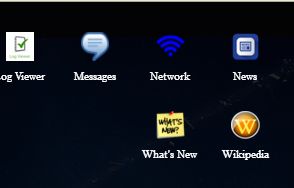I understand what NIST does and what the randomness beacon is, my point is that its not necessary for a service like outernet… if you need it, your capable of other more efficient means.
With all due respect,
A tip: whenever you find yourself saying that, it means you are being rude and should reconsider.
Im trying to be civil, in a situation where we don’t know each other nor can we see each other. But heres another tip, you are rude, curt and condescending on this forum to the people who want to help you. You’ve done it to me many times. its your site, you can do what you want, but there are people here that want to help, and you’ve smacked them around… you’ve stated your a small team. There is an army of people who want to help, and its like pulling teeth to do so. Let people help.
There are no Outernet users currently in the Central African Republic. Thats not how our rollouts work. Dedicated rollouts that have been done use customized file packages.
it was an example dude, you claim the service is for those who are limited in resources… Can you imagine pitching this to NGO (which i know you have done and failed) and saying you can reach THOSE people…
“What people can use”: and that is what, exactly? Peoples’ uses are varied, and specific applications of Outernet tech get customized to specific classes of people. Thats what we do, in collaboration with such classes of people, instead of trying to imagine ourselves, without any basis, what “people in the warzone of Central African Republic” need.
dude you missed the point AGAIN! get with the NGOs in those areas, what information do they want to send? I promise though they will never give a crap about the wikipedia page of starbucks.
Let me get right on that: scotty, lets beam down some food!
Negative criticism is easy, everyone is a critic online.
you ASKED! shall i provide you with exquisite prose and platitudes to reinforce your existing views? or give my OPINION as you asked? and this is a real situation since you mention it… regarding haiti aid after the earthquake… federal Center for International Disaster Information director Suzanne H. Brooks: “I guarantee you someone is going to send a winter coat or high-heeled shoes,”. its first world mindsets applied to the third world… wikipedia is a good space fillter, why not optimize what articles are sent (protip: exclude entertainment data)
Then why say it again, and with such force?
force? you didnt like what i said, accepted, but force? that impression is proportional to the level you disapproved… next time ill put in a couple  or
or  will that change it? jeez…
will that change it? jeez…
You are passionate about this, I understand - but raging against us isn’t helpful. Suggestions are always welcome, but constructive ones.
it was VERY constructive and i’m not the only one who has said it… its been mentioned here before… multiple times… You talk about the forest and trees, i am outside and i can see what this could be, you might be too close to see that… any successful business person will tell you differing perspectives provide optimal insight.
I am an advocate, i have 4 DC running as remote RF capture points, and they work great… its much easier to package and maintain than the RPI + SDR, but your failing at the one thing that makes you unique… the stream…


